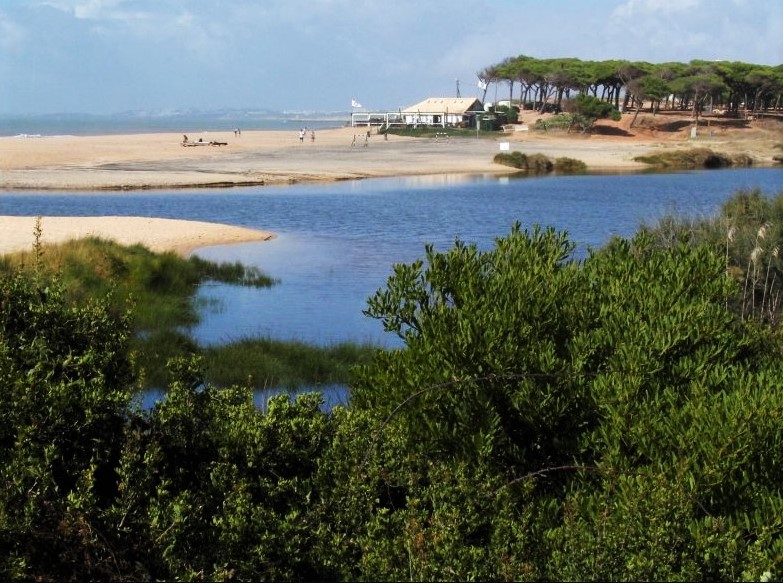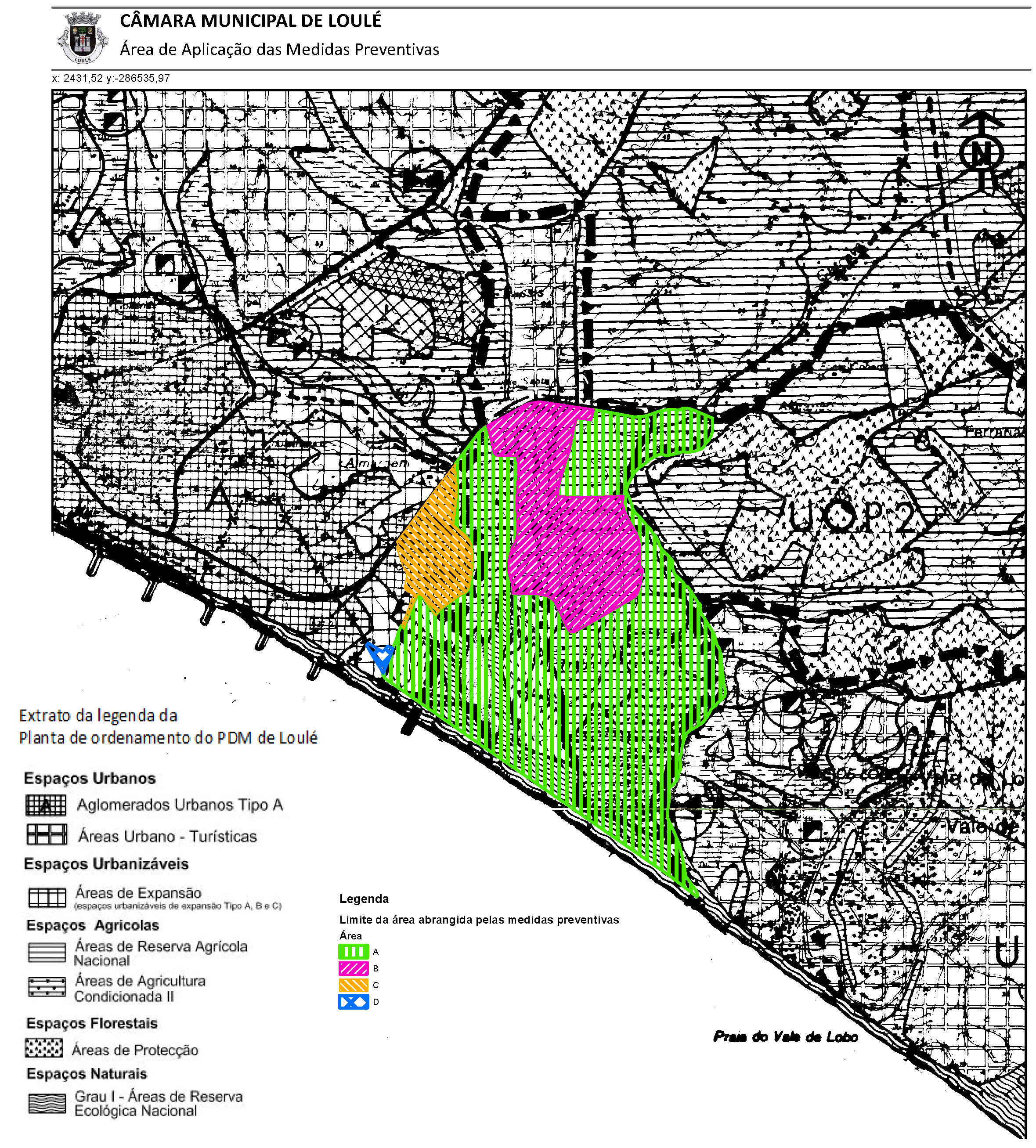Loulé Council decided to suspend the Municipal Master Plan (PDM) in the Foz do Almargem and Trafal area. The decision prevents, for the time being, another tourist development from being built in this wetland.
The decision was approved, still in January and unanimously, by the City Council. Then, on the 22nd of February, the Municipal Assembly of Loulé approved, by a majority, this council proposal.
There were 24 votes in favor (from the PS and Left Bloc benches), three abstentions (from a PS deputy and the presidents of the Parish Council of Salir and of the Parish Union of Querença, Tôr and Benafim, elected on the PSD lists ) and seven votes against by the deputies of the PSD and the CDS/PP.
In a statement, the Municipality of Loulé explains that it "founded the need to establish preventive measures for the area in question, in order to avoid changing circumstances and existing conditions that could limit the freedom of planning, compromise or make more onerous the execution of the review process of the Loulé PDM in progress'.
«The establishment of these preventive measures and the subsequent suspension of the effectiveness of the Loulé PDM in force for this territorial area are based, in short, on the verification of the existence of a set of environmental weaknesses», he says.
And this is, in fact, a victory for environmentalists. The suspension of the PDM impedes the progress of the Quinta do Oceano project, whose promoting entity is the Special Closed Real Estate Investment Fund — Invesfundo VII, of the Novo Banco group.
António Ramalho, CEO of Novo Banco, in a recent conversation with Algarve journalists and answering a question from Sul Informação, admitted that there are, in real estate assets in the Algarve, «issues under discussion where there is some divergence with the CCDR or with the Municipal Councils». "We are trying to resolve these issues naturally, it is part of the rules of the game," he added.
One of the cases, he admitted, is that of the land where the current campsite is located, in Quarteira, whose "result was not encouraging." The Quinta do Oceano project foresaw the construction of 499 dwellings, in buildings from two to six floors, very close to Trafal.
António Ramalho expressed some surprise at the decision of the Loulé Council, bearing in mind that «the area that has grown there, there are houses in that area, supermarkets are growing in that area. It does not seem to us that it is [comparable with] the expansion of tourism in Vale do Lobo». “It's the only place Quarteira can grow to, since it can't grow next to Vilamoura,” he pointed out.
The CEO of Novo Banco also announced that the banking institution will discuss the issue "with those who are entitled and with the enormous respect we have for the president of the Loulé Chamber and for his services".
António Ramalho also defended that, «in order to have an intelligent protection of the seafront, it is necessary to work together with the investor in order to have an intelligent process, convincing the investor. I don't defend successive Pear Frames or Quarteiras, but you can't stop everything».
What is certain is that, with the decision to suspend the PDM in the Foz do Almargem and Trafal area, the fund's project linked to Novo Banco is in dire straits.
Em June of last year, the Almargem association had made a public request to the Loulé Council to move forward, «immediately, with the process of classifying the Trafal and Foz do Almargem area as a local protected area», thus blocking the progress of the Quinta of the Ocean.
Now, in taking this decision, the Loulé Council explains that the fact that there is a project for the Valorization of Wetlands of the Algarve, under development, with the operational coordination of Almargem, also weighed in, which «could lead to the classification of the area surrounding the Foz do Almargem and Trafal as a Local Protected Landscape».
According to the municipality, the adoption of these preventive measures has, precisely, the advantage of «the safeguarding of areas to be protected, when dealing with sensitive ecosystems, in particular the Almargem and Carcavai streams and respective lakes, whose land areas are flooded with seasonally or permanently, and which act as natural barriers against natural disasters, helping to significantly minimize the impacts of climate change”.
Another important “objective that is intended is the enhancement of the entire urban system of Quarteira, by avoiding a greater density of buildings and preventing loads of occupation of the territory that would be excessive and also harmful”. Thus, under the preventive measures, "the current maximum permitted construction rates go from 70% to a maximum of 20%".
«For the decision to present that proposal to the Municipal Assembly, the executive took into account the current land use regime provided for in the PDM for that area, which calls into question the current municipal strategic options, reflected in the Report on the State of Planning of the Territory (REOT) and the Municipal Strategy for Adaptation to Climate Change (EMAAC), concluding that, given the biophysical sensitivity of the area in question, the current land use regime called into question the minimization of impacts resulting from climate change and respective safeguard the pursuit of the public interest'.
The establishment of these preventive measures and the suspension of the Loulé PDM for that area occurs for a period of two years, extendable for another one (if necessary) or until the new Municipal Master Plan comes into force.
The wetland of Foz do Almargem and Trafal was one of those that was in the spotlight of the Environmental Education Network for Ecosystem Services (REASE), an environmental education project coordinated by Almargem and which involved several entities in the Algarve, including the CCMAR of the University of Algarve, the Ciência Viva de Faro and Tavira and Algarve schools.
Within the scope of Rease, in addition to having been promoted a walk through Trafal and Foz do Almargem, to make known the environmental wealth of this area, was launched a publication about Cadoiço and Foz do Almargem.




















Comments